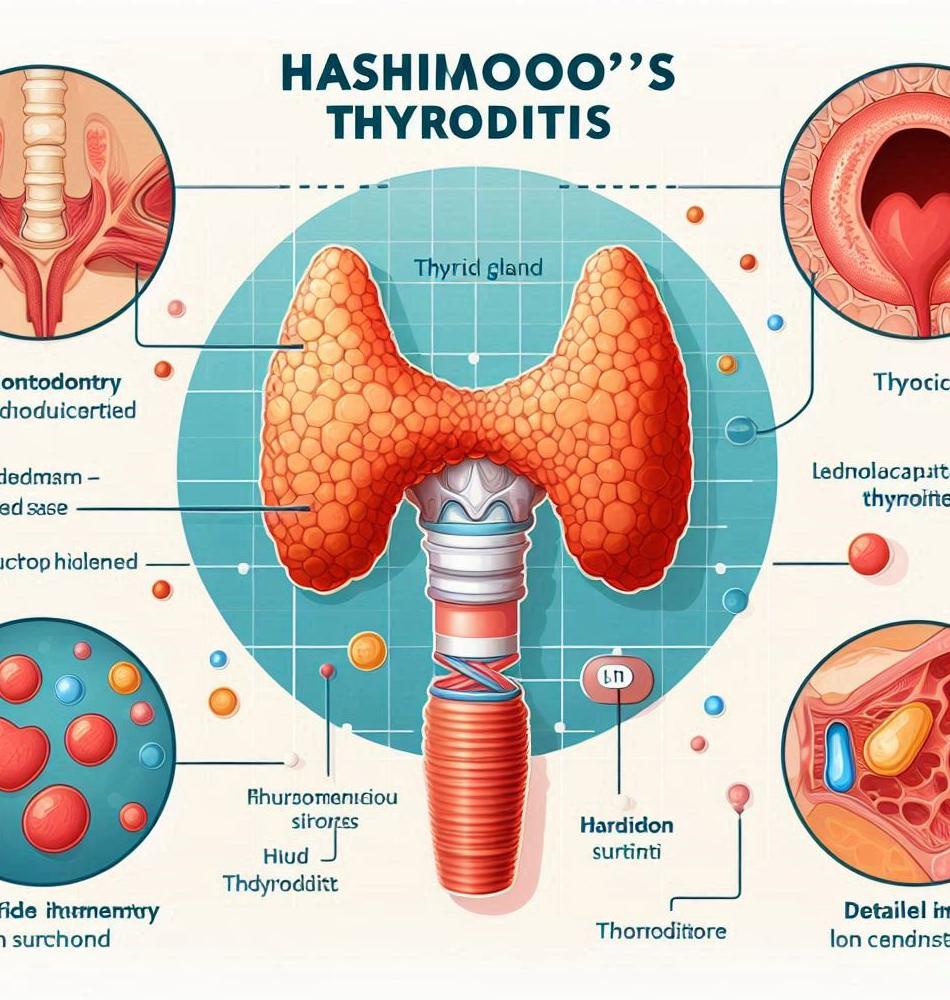Unlocking the Genetic Mysteries of Hashimoto's Disease 🔍
When it comes to autoimmune diseases, few are as often discussed or as perplexing as Hashimoto's disease. This condition, which primarily affects the thyroid gland, leads to symptoms such as fatigue, weight gain, and depression. But what makes Hashimoto's disease truly fascinating is its complex interplay with our genes. Is Hashimoto's disease genetic? In this article, we will unravel the connections between your DNA and this condition. Get ready to embark on a journey of understanding the genetic underpinnings of Hashimoto's disease.
The Genetic Predisposition to Hashimoto's Disease 🧬
A common question that emerges among those diagnosed with Hashimoto's disease is whether it runs in families. The answer is both compelling and complex. Research suggests a significant genetic component to Hashimoto's disease.
The Role of Family History 🔗
Having a family history of autoimmune disorders can increase the likelihood of developing Hashimoto's disease. Some significant points to consider include:
- Individuals with first-degree relatives suffering from autoimmune disorders are at a greater risk.
- Women are significantly more likely to develop Hashimoto's disease compared to men, emphasizing the gendered aspect of genetic predisposition.
Identifying Genetic Markers 🔍
Researchers have delved into identifying specific genetic markers associated with Hashimoto's disease. Some noteworthy markers include:
- HLA-DR3 and HLA-DR4 alleles: Associated with increased risk for autoimmune diseases.
- SNPs (Single Nucleotide Polymorphisms): Variations in DNA sequences that may influence susceptibility.
The Environmental Factors Influencing Hashimoto's Disease 🌍
While genetics play a crucial role in Hashimoto's disease, environmental factors cannot be overlooked. It is the combination of genetic vulnerabilities and environmental triggers that may lead to the development of this autoimmune disorder.
Common Environmental Triggers ⚠️
Various external factors can trigger Hashimoto's disease in genetically predisposed individuals. Some of the most common triggers include:
- Certain viral infections that may spark an immune response.
- Stress: Prolonged stress can destabilize immune function.
- Pregnancy: Hormonal shifts may activate latent autoimmune conditions.
- Nutritional deficiencies such as selenium or vitamin D.
Understanding the Immune Response 📊
Hashimoto's disease manifests as an immune response where the body's immune system mistakenly attacks the thyroid gland, leading to hypothyroidism. The interplay between genetics and the immune system is uniquely intricate. Some of the key components include:
- Autoantibodies targeting thyroid proteins- Imbalanced cytokine production- Changes in T-cell regulationPreventing & Managing Hashimoto's Disease 🛡️
If you suspect a genetic predisposition to Hashimoto's disease, there are many proactive steps you can take. While you cannot alter your genetic makeup, you can definitely manage symptoms and potentially reduce the risk of developing this condition.
Key Lifestyle Changes 🌱
Implementing lifestyle changes can go a long way in managing Hashimoto's symptoms:
- Regular exercise to boost energy levels and improve overall health.
- Maintaining a balanced diet rich in antioxidants, vitamins, and minerals.
- Avoiding processed foods and opting for nutrient-dense whole foods.
Consulting Your Health Care Provider 💼
Seeing a healthcare provider experienced in treating thyroid disorders is vital:
- Regular monitoring of thyroid levels- Exploring medication options such as levothyroxine- Potential supplementation with selenium and vitamin DFrequently Asked Questions ❓
- Is Hashimoto's disease exclusively genetic?
- Can I develop Hashimoto's disease without a family history?
- What tests can determine if I have Hashimoto's disease?
- Is Hashimoto's disease more common in certain populations?
- Can lifestyle changes reverse Hashimoto's symptoms?
Is Hashimoto's Disease Rare? 🧐
Not at all! Hashimoto's disease is one of the most common autoimmune disorders. Although it can affect anyone, it primarily targets women, with estimates suggesting that about one in eight women may be affected at some point in their lives.
The Future of Hashimoto's Disease Research 📚
Ongoing research continues to peel back layers in our understanding of Hashimoto's disease. Genetics is just one piece of the puzzle, and the industry is advancing towards a more comprehensive understanding of this autoimmune disorder. To sum it up, the road to a clearer understanding includes:
- Identification of genetic markers that can predict susceptibility.- Investigating the environmental interplay affecting the immune response.- Developing targeted treatments based on genetic and environment interactions.Conclusion: The Intertwined Nature of Genetics in Hashimoto's Disease 📝
Hashimoto's disease is a complex condition shaped by both genetic predispositions and environmental triggers. While we may not be able to change the genetic cards we are dealt, understanding the role genetics plays can empower individuals to make informed decisions about management and prevention. By staying informed and proactive, those at risk can navigate the path toward better health, ultimately taking charge of their well-being in the face of Hashimoto's disease.
.png)






